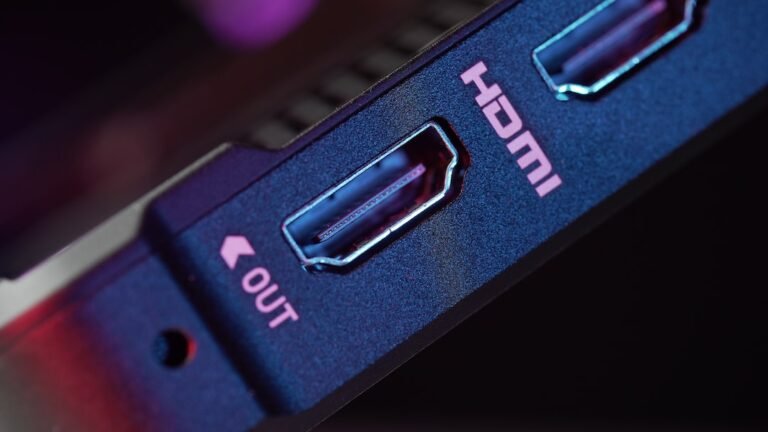Introduction
In an era where online privacy and security are of utmost concern, VPNs have become increasingly popular tools for internet users across the globe. Italy, as a country with a significant online presence, has seen a rise in VPN usage among its residents and visitors. This comprehensive guide aims to demystify VPN use in Italy, providing insights into the legal aspects, regulations, and guidelines surrounding VPN usage in the country. Whether you’re an Italian resident or planning a trip to Italy, understanding VPNs and their implications is essential to protecting your online privacy and accessing geo-restricted content.
VPN Italy: A Closer Look
Italy, known for its vibrant culture and rich history, is also a thriving digital hub. With a high internet penetration rate and a growing demand for online services, Italians are no strangers to the need for secure internet connections. VPNs, or Virtual Private Networks, offer a solution to address this need by providing a secure and encrypted connection between a device and the internet.
How do VPNs work?
VPNs work by rerouting your internet traffic through an encrypted tunnel to a server located in a different location. By doing so, VPNs mask your IP address, making it appear as if you are browsing the internet from the server location rather than your actual location. This process not only enables you to access geo-restricted content but also enhances your online privacy and security.
Benefits of using a VPN in Italy
Using a VPN in Italy comes with a variety of benefits, including:
Online privacy: By encrypting your internet traffic, VPNs protect your sensitive information from prying eyes, including hackers, government surveillance, and internet service providers (ISPs).
Bypassing censorship and geo-restrictions: VPNs allow you to bypass censorship measures and access geo-restricted content, such as streaming services, social media platforms, and news websites that may be blocked or limited in Italy.
Enhanced security on public Wi-Fi networks: Public Wi-Fi networks, such as those found in cafes, airports, and hotels, can be vulnerable to hackers. By using a VPN, you can ensure that your online activities remain secure and private, even on unsecured networks.
Anonymous browsing: VPNs provide anonymity by masking your IP address and making it difficult for websites to track your online activities. This is especially useful if you prefer to browse the internet without leaving a digital footprint.
Secure remote access: If you frequently work remotely or need to access sensitive company resources while traveling in Italy, using a VPN ensures that your connection is secure and encrypted, protecting sensitive data from potential breaches.
The Legality of VPN Use in Italy
Is VPN Legal in Italy?
The use of VPNs in Italy is legal. In fact, the Italian government recognizes the importance of online privacy and does not have any specific laws that prohibit the use of VPNs. As a result, Italian residents and visitors are free to use VPN services for personal or professional purposes without fear of legal repercussions.
However, it’s important to note that while VPN use itself is legal, using VPNs for illegal activities remains prohibited. Engaging in illegal activities, such as hacking, copyright infringement, or cyberbullying, using a VPN or otherwise, is subject to legal consequences.
VPN Legality Worldwide
While VPN use is legal in Italy, the legality of VPNs varies from country to country. Some countries, such as China, Russia, and Iran, have implemented strict regulations and even banned the use of VPNs altogether. In other countries, such as the United States and Canada, VPNs are widely used and legally accepted. If you plan on using a VPN while traveling abroad, it’s essential to familiarize yourself with the local regulations to ensure compliance.
VPN Regulations in Italy
Italy does not have specific regulations governing the use of VPNs. However, it’s worth mentioning that Italy is a member of the European Union (EU), and therefore, the General Data Protection Regulation (GDPR) applies. The GDPR protects the privacy and security of personal data for EU residents, including Italians. VPN providers operating within the EU must comply with the GDPR and ensure that user data is handled securely and in accordance with the regulation.
When choosing a VPN provider in Italy, it’s advisable to opt for a reputable company that adheres to privacy regulations and does not log user activity. Look for VPN providers with a no-logs policy, which means they do not retain any information about your online activities.
VPN Usage Guidelines in Italy
While there are no specific guidelines governing VPN usage in Italy, it’s important to follow certain best practices to ensure a secure and reliable VPN experience. Consider the following guidelines when using a VPN in Italy:
Choose a reputable VPN provider: Research and select a VPN provider that has a solid reputation for privacy and security. Look for providers with strong encryption, a no-logs policy, and a wide selection of server locations.
Ensure device compatibility: Before subscribing to a VPN service, verify that it is compatible with your device and operating system. Most VPN providers offer apps for Windows, macOS, iOS, and Android, but it’s crucial to confirm this beforehand.
Connect to secure servers: When using a VPN, select servers located in countries with robust privacy laws and respect for digital rights. This can provide an additional layer of protection for your online activities.
Use strong passwords: While VPNs encrypt your internet connection, it’s important to use strong, unique passwords for your online accounts to prevent unauthorized access.
Regularly update your VPN software: VPN providers often release software updates to address security vulnerabilities and improve performance. Make sure to keep your VPN software up to date to benefit from these enhancements.
Conclusion
Using a VPN in Italy can offer numerous advantages, including enhanced online privacy, bypassing geo-restrictions, and secure browsing on public Wi-Fi networks. With VPN use being legal in Italy, residents and visitors can enjoy the benefits of a VPN without fear of legal repercussions. When choosing a VPN provider, it’s important to prioritize reputable companies that prioritize user privacy and security. By following best practices and guidelines, you can make the most out of your VPN experience in Italy and ensure a secure online presence.
FAQ
| Question | Answer |
|---|---|
| What is a VPN and why do I need a VPN? | A VPN, or Virtual Private Network, provides a secure and private internet connection. It encrypts your internet traffic, masks your IP address, and enhances your online privacy and security. You need a VPN to protect your sensitive information from hackers, bypass censorship or geo-restrictions, and ensure secure remote access. |
| Is VPN illegal or is VPN legal? | VPN usage is legal in Italy. However, it’s essential to use VPNs for legal purposes. Engaging in illegal activities, such as hacking or copyright infringement, using a VPN or otherwise, is prohibited. |
| What are the risks of using a VPN in Italy? | While VPN use in Italy is legal, it’s important to choose a reputable VPN provider. Some VPN providers may log user activity or compromise privacy. Additionally, using VPNs for illegal activities can lead to legal consequences. |
| Can I use a free VPN in Italy? | While there are free VPN options available, it’s important to exercise caution. Free VPNs often come with limitations, such as data caps and slower connection speeds. They may also compromise user privacy and security. Opting for a reputable paid VPN service is generally recommended for a reliable and secure VPN experience. |
| What are the benefits of VPNs in Italy for expats? | VPNs can be highly beneficial for expats in Italy. They provide a secure and encrypted connection, allowing expats to access geo-restricted content from their home countries. VPNs also enable expats to bypass censorship measures and ensure secure communication, especially when connecting with family and friends abroad. |
Further Reading
Here are some external resources you can refer to for more information on VPNs and their use in Italy:
| Website | Description |
|---|---|
| Italian Data Protection Authority | The official website of the Italian Data Protection Authority provides information on privacy regulations and guidelines in Italy. |
| European Data Protection Board | The European Data Protection Board offers insights into privacy and data protection regulations within the European Union, including Italy. |
These resources will provide you with a deeper understanding of privacy regulations, data protection, and VPN use in Italy.




